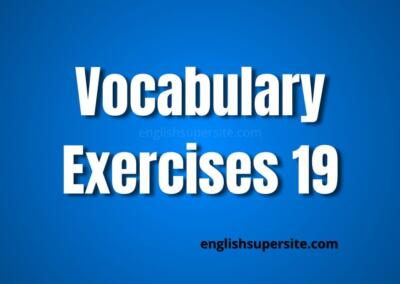
Irregular Verbs
Irregular verbs don’t follow the typical -ed pattern used to form the past tense and past participle in English. Instead, they have unique forms that you need to memorize (e.g., “go” → “went”, “sing” → “sang”). These verbs are common in daily communication, and mastering them is essential for fluency. Irregular verbs vary significantly, so regular practice helps you remember their correct forms.
Learning irregular verbs ensures you use past tenses and participles accurately, keeping your communication clear and fluent.

Irregular Verbs - Exercises 2 - Irregular Verbs - Quiz 2. An easy and fun way to learn and practice Irregular ...

Irregular Verbs - Exercises 2Practice these exercises with Irregular Verbs:Irregular Verbs - Exercises 2: ...

Irregular Verbs - Exercises 3 - Irregular Verbs - Quiz 3. An easy and fun way to learn and practice Irregular ...

List of Irregular Verbs | English Super SiteList of Irregular VerbsQuick ...

Learn here the basics of English Grammar. Parts of Speech are nouns, pronouns, adjectives, verbs, adverbs, ...

Transition Words and Linking Words describe the relationship between two statements, phrases, sentences, or paragraphs.
Related Posts

Fill up or Fill in or Fill out - Exercises 2 - Practice exercises in English. Fill up or Fill in or Fill out - Quiz 2.

Addressing People in English | English Super SiteHow to address people in English!How to address ...

Improve your English with Vocabulary - Exercises 19. Take a multiple-choice quiz with real-time feedback and boost ...


